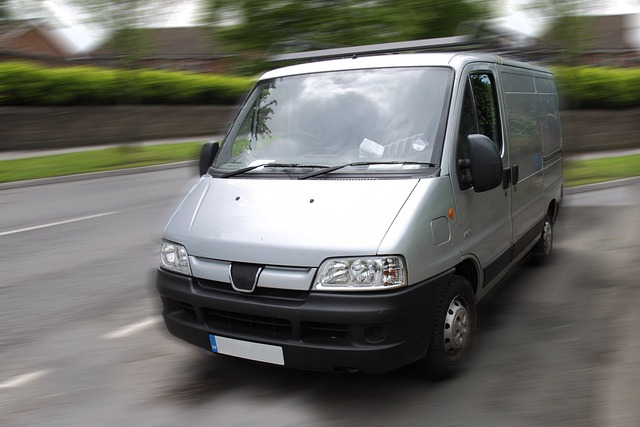Understanding how company vans are taxed is crucial for both you and your and employees. Therefore in this article, we’ll explore the rules, tax benefits, and important considerations.

What is a van?
Knowing how company vans are taxed means being aware what is considered a 'van' by HMRC. In tax terms a van is considered the following:
Work buses etc are not vans because they are primarily suited to carrying people.
Double cab pick ups
For double cab pick-ups, previously HMRC aligned the meaning of 'van' in line with the VAT definition. This meant that double cab pick-ups with a payload of 1,000kg or more were considered vans for BIK purposes.
However, as mentioned in our post on the 2024 Autumn Budget HMRC have now changed the rules. From 6 April 2025 on all double cab pick-up vehicles with a payload of one tonne or more. They will now be reclassified as cars for tax purposes. This is because in HMRC's opinion these vehicles are equally suited to convey passengers and goods and have no predominant suitability (see above).
How are company vans taxed?
There is a flat rate benefit charge for private use for the 2024/25 tax year this is £3,960. Additionally a tax charge applies for any private fuel costs paid for by your company. This amounts to £757 for the 2024/25 tax year.
Tax-free benefits
In some cases, the provision of a company van may be a tax-free benefit. Although, this depends on how the van is used. Notably there is no tax charge occurs when private use is insignificant or limited to commuting:
HMRC provide examples of what they consider to be insignificant private use, this includes:
However HMRC do not consider using the van for weekly shopping, taking it on holiday or for social activities to be insignificant private use.
Reducing the benefit charge for private use
Where you make a payment for private use, the charge is reduced according to the payment. What's more, provided you make payment up to 6 July after the end of the tax year the charge can be reduced. Although this is provided the benefit is not payrolled.
Shared vans
If your company van is shared by multiple employees, the benefit charge for private use reduces on a reasonable basis. The total charge cannot exceed the equivalent of sole use.
A shared van must be available to more than one employee at the same time and provided by the same employer. Additionally it must be available for private use by each employee.
Zero-emission vans and lorries
There is no van benefit charge currently for a zero-emission van owned by your company which is available for private use.
There is no benefit charge applicable to Lorries and vans exceeding the 3,500 kilograms design weight. This is because HMRC are of the opinion that there is unlikely to be any private use on such a vehicle.
Plug in grants
Plug-in grants are available on the purchase of certain low emissions vans, as well as other vehicles. However, this is subject to government policy (which appears inconsistent). A grant has no impact on the taxable benefit of an employer-provided van. This is because the benefit is not calculated according to cost.
VAT and vans
Where your business is VAT registered, you can recover VAT on the purchase price of a van. Although you will also need to charge VAT on the sale price of a van if you're a VAT-registered business.
Additionally, if your business is VAT registered, you can recover VAT on the purchase price of a van. Although you will also need to charge VAT on the sale price of a van if you're a VAT-registered business.
Summary and planning points
You should set your van policy for private use by employees in writing. Equally importantly keep this updated and give it to your van driving staff. Alternatively you should make it available where all your employees can read it.
Ideally, your employees should sign a statement to confirm that they accept and adhere to your company policy. Additionally, mileage records should be kept of actual use of the vehicle. This will provides useful evidence should you receive a PAYE visit from HMRC. In addition, it makes the annual task of completing form P11D easier.
By following these guidelines, you can better understand how company vans are taxed and stay compliant. HMRC have a habit of changing the rules (see double pick-ups). Therefore always stay updated so you can make informed decisions about company vans and their benefits.
For more useful information, check out our Ebooks here.
And if you'd like to know how we can help you with all of this, or with anything else, feel free to give us a call on 01202 048696 or email us at [email protected].
Alternatively, please feel free to complete our Business Questionnaire here.
